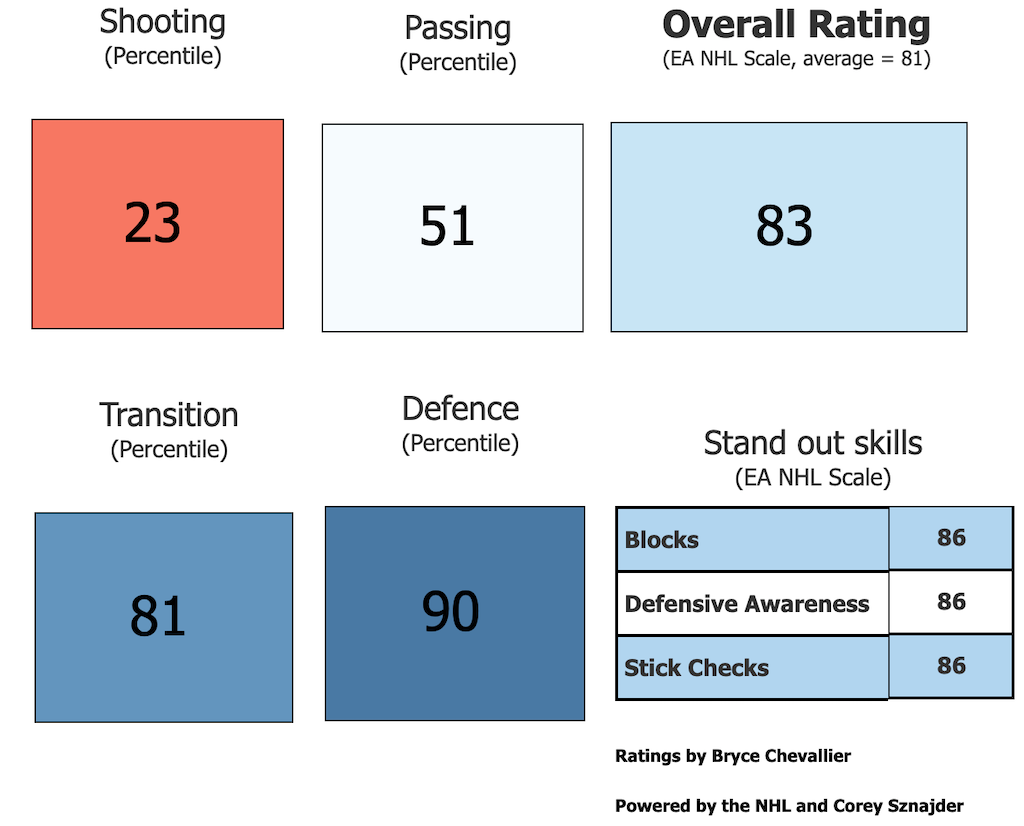Rookie camp opens today, with veterans following on Sept. 22, a week from today, for training camp. The New Jersey Devils’ roster is as good as set, but it wouldn’t hurt to spur some competition in camp by bringing in players on PTOs. They did so yesterday by signing Mark Jankowski, Jimmy Vesey and Tyler Wotherspoon to PTO deals. If they perform well during camp and the preseason, they could earn NHL deals for the 2021-22 season.
Jankowski spent 2020-21 with the Pittsburgh Penguins and totaled 11 points in 45 games. Vesey split his year between the Toronto Maple Leafs and Vancouver Canucks and had 10 points in 50 games. Wotherspoon, a former second-round pick, has spent most of his career in the AHL and could add depth to the Utica Comets’ roster, depending on how the Devils decide to structure their blue line for 2021-22.
Jankowski is the most intriguing of the three PTOs the Devils signed, while Vesey is looking to show he can still contribute to an NHL team. Let’s see what they have to offer.
Jankowski Could Add Depth and Defensive Help
Jankowski was a first-round pick (21st overall) of the Calgary Flames at the 2012 NHL Draft. Though he was a high selection, the Flames reached quite a bit in selecting him where they did. NHL Central Scouting had Jankowski rated as the 43rd-best North American skater in 2012. Not the 43rd overall skater, but the 43rd North American skater. Add in European prospects, and that means he probably should’ve been a late second-round or early third-round pick.
While Jankowski has not lived up to being a first-round pick, he’s had some productive seasons in the NHL. In his first two years with the Flames, he totaled 57 points in 151 games — an average of 31 points per 82 games. However, his production has declined significantly since then. He has only 18 points in his last 101 games, and his shot generation has plummeted well below an average of one shot on goal per game.
But even though Jankowski’s production has fallen off, he’s still a very capable defensive forward. He was one of the Penguins’ better shot suppressors this past season, and his overall defensive game has been worth a goals above replacement of 9.5 since the start of 2018-19. This visual from Architecte-Hockey, which includes data tracked by Corey Sznajder, shows where Jankowski ranks among his peers in certain categories:

This visual is a good representation of what Jankowski offers at this point in his career. He doesn’t add much offensively but ranks in the 90th percentile in defense among NHL forwards. His standout skills are shot-blocking, defensive awareness, and stick checks. Given what we know about him already, that shouldn’t be too much of a surprise.
It’s also worth noting Jankowski’s transition game, which ranks in the 81st percentile. The Devils played an up-tempo, rush-based system in Lindy Ruff’s first season as head coach in 2020-21. You need to be able to excel in transition to play in such a system, and it appears Jankowski might fit in with how Ruff wants to play.
Jankowski will have to find a way to score more often if he wants to make the Devils and be a mainstay in their lineup. He has an underrated shot but has to shoot the puck much more often, so he could rebound if he’s able to do so. If he can’t regain his scoring touch, he’s still good enough defensively to be the team’s 13th forward. And if Michael McLeod works his way up the lineup and ends up as the Devils’ third-line center, Jankowski fits as a defensive fourth-liner who can kill penalties.
Vesey Looking for a Fresh Start
Vesey was once a highly-touted prospect coming out of the NCAA. After putting up 46 points in 33 games with Harvard University during his senior season, he opted not to sign with the Nashville Predators and elected to head to free agency instead. Though the Devils were among the teams competing to sign him, Vesey ultimately chose the New York Rangers.
Vesey had a productive first three seasons in the NHL, where he averaged 17 goals and 31 points per 82 games. But he certainly never lived up to the hype that surrounded him when choosing his destination after opting for free agency. That led to the Rangers trading him to the Buffalo Sabres, where he spent the 2019-20 campaign and had 20 points in 60 games.

The 2020-21 season was a rough one for Vesey. He had averaged 0.47 points per 60 minutes at five-on-five, and his even-strength offense was worth a GAR of -3.2. He did have one of his better seasons defensively. But if he’s going to make the Devils’ roster, he’ll need to be much closer to the bottom-six scorer he was with the Rangers.
The Devils’ biggest position of strength is arguably on the wing. Prospects like Alexander Holtz and Nolan Foote will be vying for NHL gigs on the wing during camp. As could Dawson Mercer if he doesn’t find himself playing center. It’s a tall task, but if the Devils decide those prospects would benefit from more time in the AHL and Vesey produces during preseason games, he could earn a spot as fourth-liner too.
You May Also Like:
- Devils’ Nico Hischier Should Be a Selke Trophy Favorite Next Season
- A Hockey Fan’s Travel Guide to New York City
- Counting Down the 10 Most Impactful Devils for 2024-25 – No. 8 – Brenden Dillon
- New Jersey Devils if They Were Summer Olympians
- Counting Down the 10 Most Impactful Devils for 2024-25 – No. 9 – Dawson Mercer
All in all, PTOs are a good way to spur camp competition. If one or two pops, they can add valuable depth to a roster. With the NHL returning to an 82-game schedule and no taxi squads, depth will be crucial. Jankowski could be a dependable fourth-line center or extra forward who can kill penalties. And if Vesey shows he can still score, he could add some offensive depth in the Devils’ bottom six, which the team will need if their prospects aren’t ready for the NHL.
* * *
Advanced stats from Evolving-Hockey, Natural Stat Trick